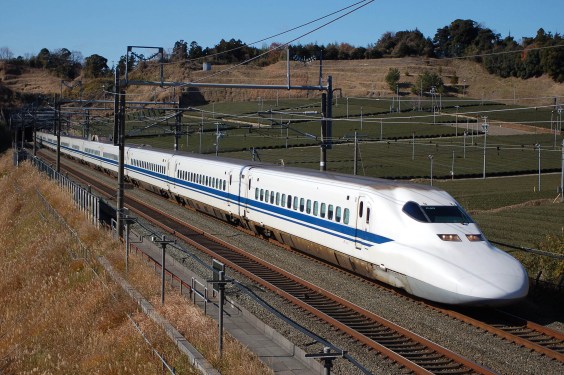There's a clear link between inactivity and obesity in America. And then there's the connection between inactivity and a car based-lifestyle, infrastructure that discourages walking and biking, low prioritization of transit, and so forth. Recent research has shown that places where active commuting is more common have lower rates of obesity.
Now a new report published in Medicine & Science in Sports & Exercise is helping to connect the dots some more, quantifying the sedentary lifestyle that prevails in the United States. It turns out, Americans taking far fewer steps over the course of a day than Australians, the Swiss and the Japanese. Eric Jaffe at The Infrastructurist brings us this summary:
Using pedometers to collect data on 1,136 Americans, researchers found that they averaged 5,117 steps a day. (A mile is roughly 2,000 steps.) Meanwhile Australians averaged 9,695 steps a day, the Swiss clocked in at 9,650, and the Japanese puttered about at 7,168 paces.
The report’s lead author, David R. Bassett of the University of Tennessee, blames America’s poor performance on its auto obsession and lack of public transportation: “People do have to exercise,” he said. “But our overall environment does not lend itself to promoting an active lifestyle.”
Bassett told Reuters, "Five thousand steps is really pretty inactive," estimating that Americans would need to walk for another 30 to 40 minutes per day to catch up to other countries. Interestingly, findings were similar for suburban, urban and rural dwellers. Maybe some suburbs and rural areas are more walkable than others, and some cities less so.
Elsewhere on the Network today: Bike Portland offers a tutorial on peer-to-peer car sharing, following California's actions to remove legal hurdles to the activity. Garden State Smart Growth ticks off a list of accomplishments from New Jersey's regional planning efforts. And Metro Rider LA hosts a "World Series of Transit," matching up San Francisco, Atlanta, Cincinnati and Philadelphia on measures such as WalkScore and rail connections.






